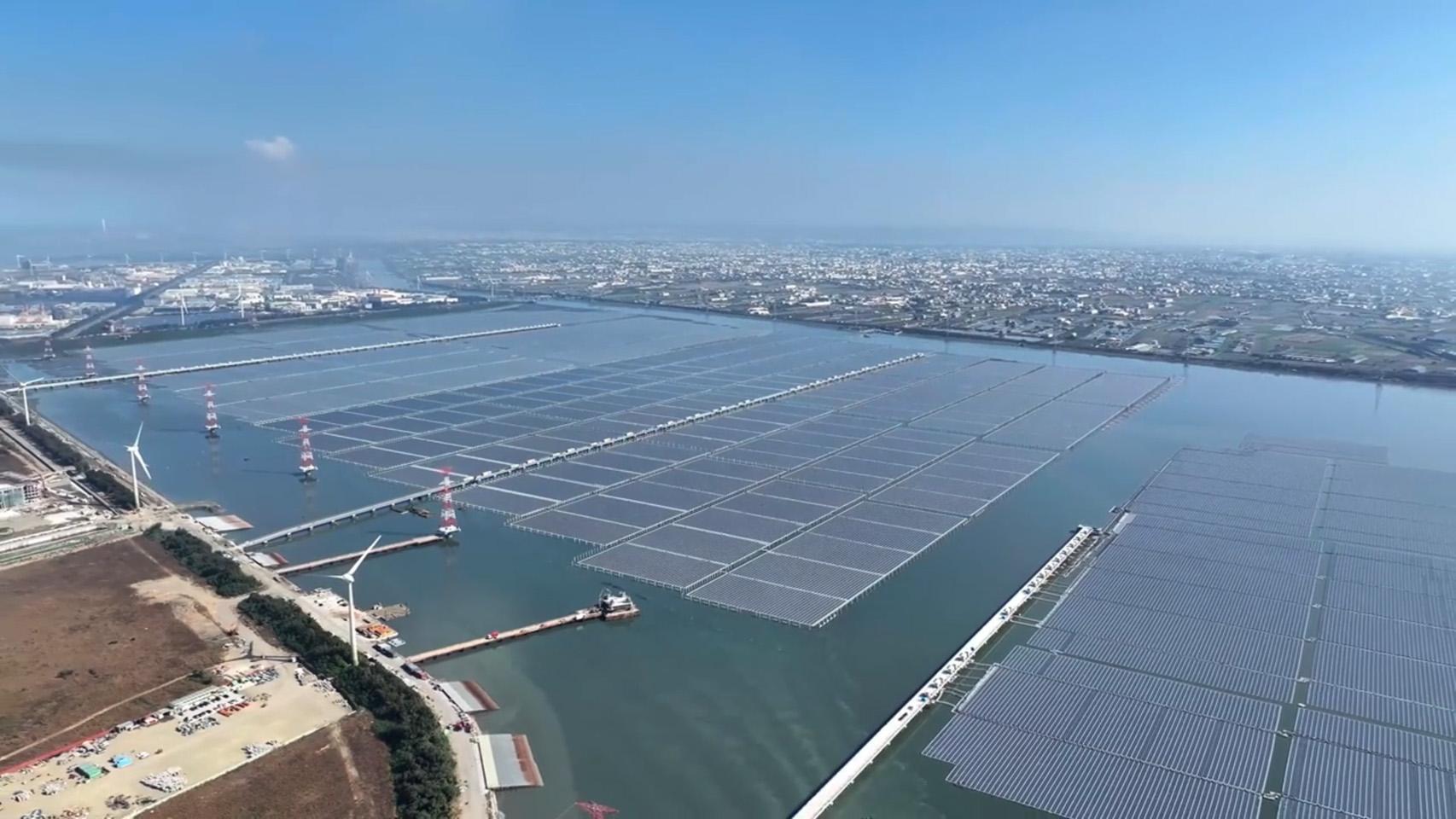Hexa Renewables has commissioned the world’s largest marine floating solar plant in Taiwan, with an installed capacity of 440 MW covering 347 hectares.
This plant can supply energy to around 74,000 households.
Project Development and Expansion
Chenya Energy, a former subsidiary of Hexa, developed and built the first stage of the project, completed in 2020. Hexa finished the expansion in February of this year, in partnership with Ciel & Terre, a French provider of floating photovoltaic solutions.
Environmental Impact and Objectives
It is estimated that the floating solar installation will offset 136,000 tons of carbon dioxide per year. The Taiwanese government aims to reach 20 GW of renewable energy capacity by 2030 and achieve net-zero emissions by 2050.

Advantages of Floating Solar Installations
These installations are ideal in warm climates, as the proximity to water helps keep the panels cool and increase their efficiency. Furthermore, they allow for projects to be developed in countries with limited available land.
Challenges and Solutions of the World’s Largest Solar Plant
The installation of the panels posed technical challenges due to waves and tides. Ciel & Terre developed an adapted anchoring system that distributes the loads according to the tide level.
This project is the first large-scale one to use concrete pillars and an H-beam system for the anchoring design.
Have you already checked out our YouTube channel? Subscribe now!

